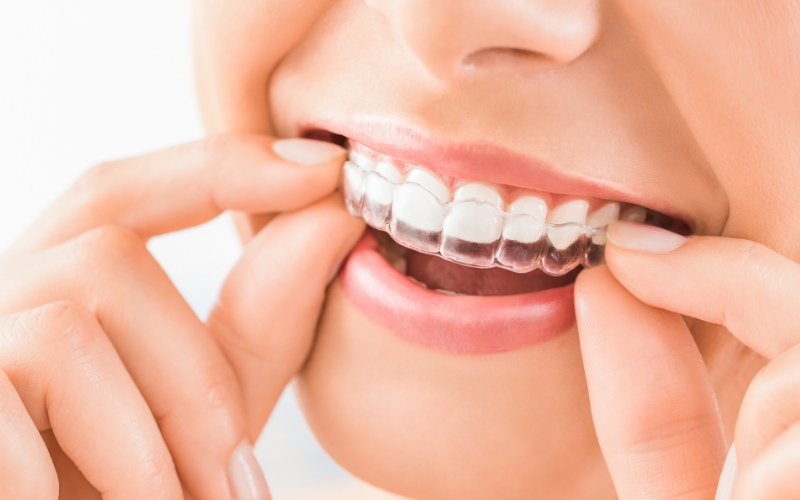
21 Oct When You Might Need a Full Mouth Reconstruction
A full mouth reconstruction involves a carefully planned series of dental procedures designed for people with complex oral health problems. This process rebuilds or replaces many or all of the teeth in both the upper and lower jaws and addresses widespread problems. For individuals who have been experiencing long-term issues with multiple teeth, gums, or jaws, dental reconstruction can improve oral function. Here are some reasons you might need a full mouth reconstruction:
Multiple Missing Teeth
Missing several teeth at once creates multiple challenges. Chewing food becomes more difficult, often forcing you to rely on the remaining teeth. This can lead to uneven wear on the remaining teeth as they work harder to compensate for the gaps. The empty spaces left by missing teeth may cause the neighboring teeth to drift or tilt, resulting in misalignment. This typically affects how your upper and lower teeth meet, making biting harder and causing discomfort in your jaw.
Gaps in your mouth can create spots where food particles get trapped, increasing the risk of decay for the remaining teeth. Speech can also be affected by gaps, especially in the front of the mouth, making certain sounds more difficult to pronounce. Full mouth reconstruction often includes dental implants, bridges, or well-fitting dentures to eliminate gaps and restore a balanced bite. Replacing missing teeth supports your mouth by distributing chewing forces and preserving jawbone structure.
Numerous Damaged Teeth
Teeth are susceptible to damage from physical trauma and long-term habits like grinding. Damaged teeth may appear cracked, chipped, or severely worn, sometimes exposing the inner layers and leading to tooth sensitivity or pain. When damage is limited to a single tooth, a filling may be adequate. When multiple teeth show signs of damage, the impact on daily life is often greater. Some risks include:
- Increased tooth weakness, leading to loss
- The development of further problems, such as decay
- Difficulty keeping teeth clean
- Changes in your ability to chew or speak normally
Dental reconstruction uses restorative techniques such as crowns, veneers, or onlays that rebuild part of a tooth. Customized dental appliances provide a comfortable, long-term solution to damaged teeth. Sturdy and properly shaped restorations restore your bite and support your remaining healthy teeth.
Severe Decay
Tooth decay is a common and persistent dental issue; when it involves several teeth, it creates serious health concerns. Deep decay can reach the nerve inside the tooth, causing pain, infection, or abscesses. When standard fillings are insufficient, dental reconstruction offers a comprehensive approach to address all affected areas. Decay may require removing the damaged portions of teeth, treating infections, or extracting teeth that cannot be saved. After decay is managed, restorative appliances are typically used to rebuild a functional and natural-looking set of teeth. Restoring the decayed teeth helps maintain oral health, reduce discomfort, and promote long-term stability.
Schedule Full Mouth Reconstruction
Recognizing persistent issues such as missing teeth, widespread damage, or severe decay is a key step toward achieving better oral health. Evaluating your dental needs with a dental professional provides clarity about your options and what may be required to restore function. Full mouth reconstruction involves a custom plan that may include a combination of dental procedures. Scheduling a dental consultation to learn more about dental reconstruction options.


No Comments